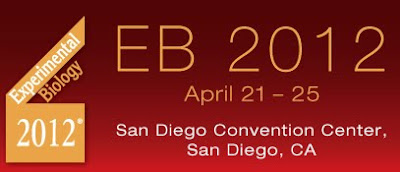This is a rather unusual molecule that I suspect most of you are unfamiliar with. You need to identify the molecule (correct trivial name will do). I also want you to identify the most important enzyme that uses this molecule as a
substrate in the normal direction of flux. Describe the dominant symptom of patients who can't make this enzyme.
Post your answers as a comment. I'll hold off releasing any comments for 24 hours. The first one with the correct answers wins. I will only post
mostly correct answers to avoid embarrassment. The winner will be treated to a free lunch.
There could be two winners. If the first correct answer isn't from an undergraduate student then I'll select a second winner from those undergraduates who post the correct answer. You will need to identify yourself as an undergraduate in order to win. (Put "undergraduate" at the bottom of your comment.)
Some past winners are from distant lands so their chances of taking up my offer of a free lunch are slim. (That's why I can afford to do this!)
In order to win you must post your correct name. Anonymous and pseudoanonymous commenters can't win the free lunch.
Winners will have to contact me by email to arrange a lunch date.
Comments are invisible for 24 hours. Comments are now open.
UPDATE: The molecule is 4α-carbinolamine, one of the products of the phenylalanine hydroxylase reaction. 4α-Carbinolamine is transformed into 5,6,7,8-tetrahydrobiopterin in two steps. In the first step it is the substrate for 4α-carbinolamine dehydratase. Mutations in that enzyme cause a mild form of phenylketonuria that usually has no serious consequences for the patient.
There are no winners this week.
Winners
Nov. 2009: Jason Oakley, Alex Ling
Oct. 17: Bill Chaney, Roger Fan
Oct. 24: DK
Oct. 31: Joseph C. Somody
Nov. 7: Jason Oakley
Nov. 15: Thomas Ferraro, Vipulan Vigneswaran
Nov. 21: Vipulan Vigneswaran (honorary mention to Raul A. Félix de Sousa)
Nov. 28: Philip Rodger
Dec. 5: 凌嘉誠 (Alex Ling)
Dec. 12: Bill Chaney
Dec. 19: Joseph C. Somody
Jan. 9: Dima Klenchin
Jan. 23: David Schuller
Jan. 30: Peter Monaghan
Feb. 7: Thomas Ferraro, Charles Motraghi
Feb. 13: Joseph C. Somody
March 5: Albi Celaj
March 12: Bill Chaney, Raul A. Félix de Sousa
March 19: no winner
March 26: John Runnels, Raul A. Félix de Sousa
April 2: Sean Ridout
April 9: no winner
April 16: Raul A. Félix de Sousa
April 23: Dima Klenchin, Deena Allan
April 30: Sean Ridout
May 7: Matt McFarlane
May 14: no winner
 I been interested in the efficacy of students evaluations for a long time [Student Evaluations] [Student Evaluations] [Student Evaluations Don't Mean Much].
I been interested in the efficacy of students evaluations for a long time [Student Evaluations] [Student Evaluations] [Student Evaluations Don't Mean Much]. 






























